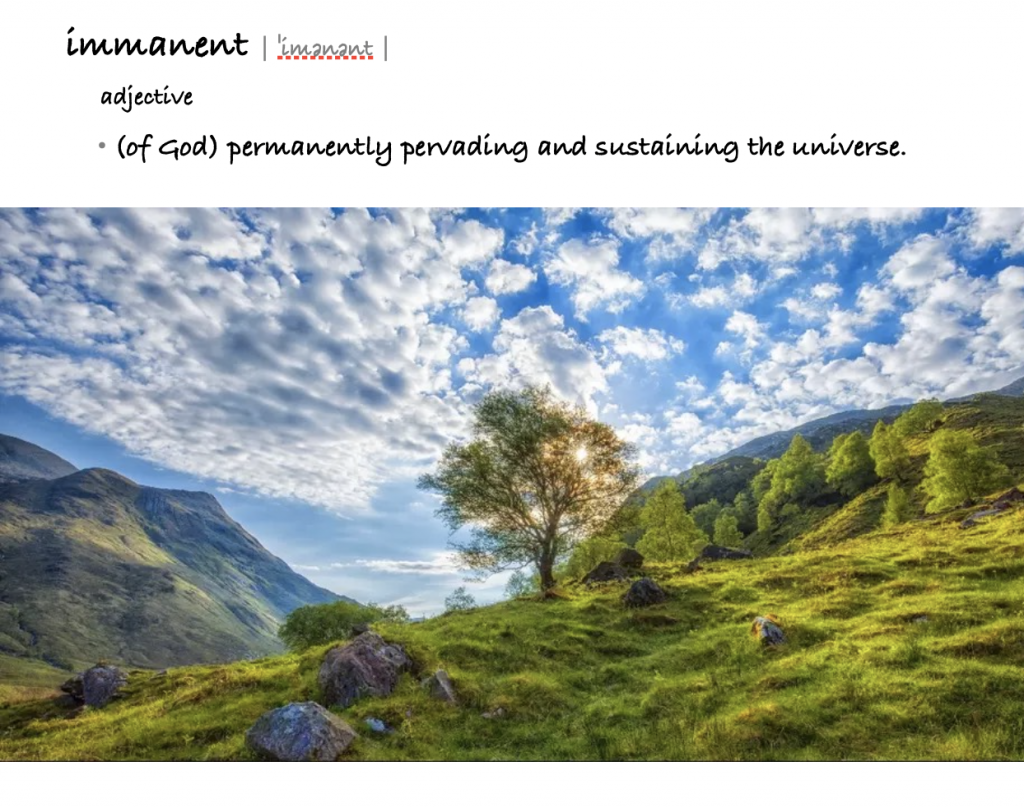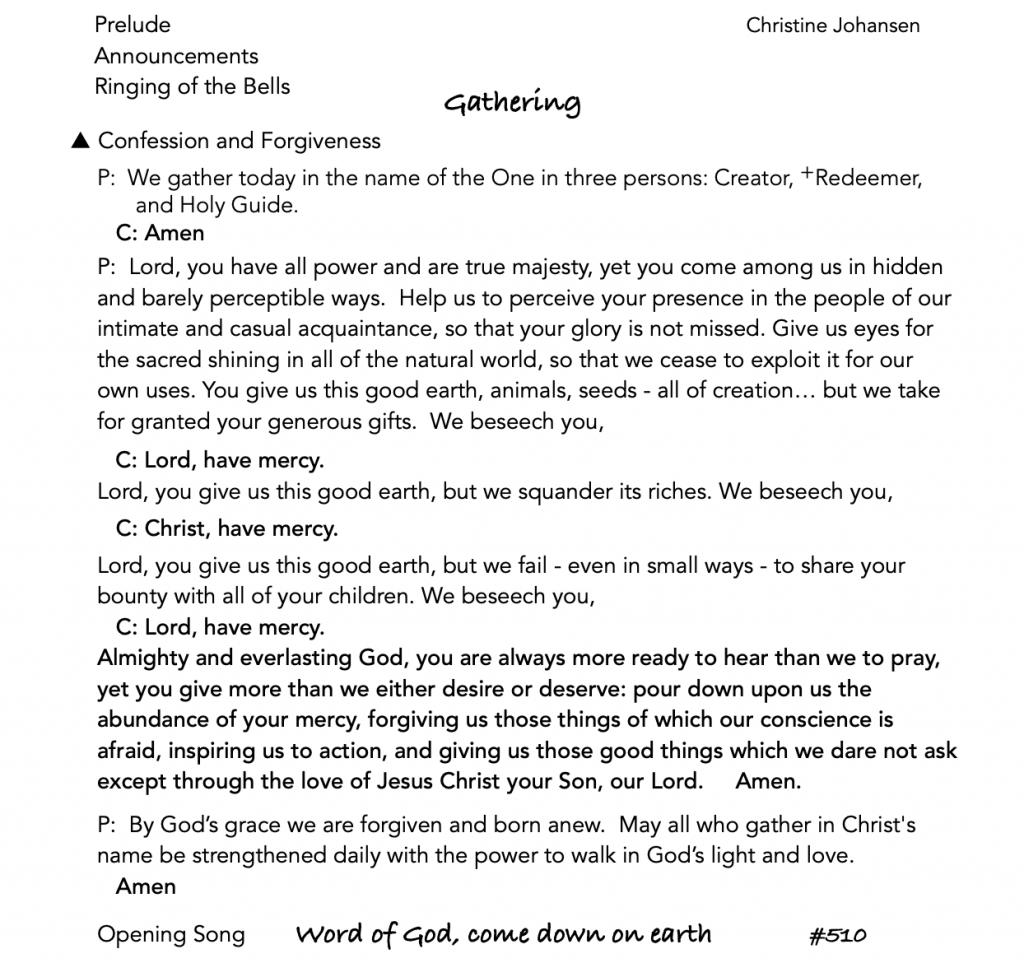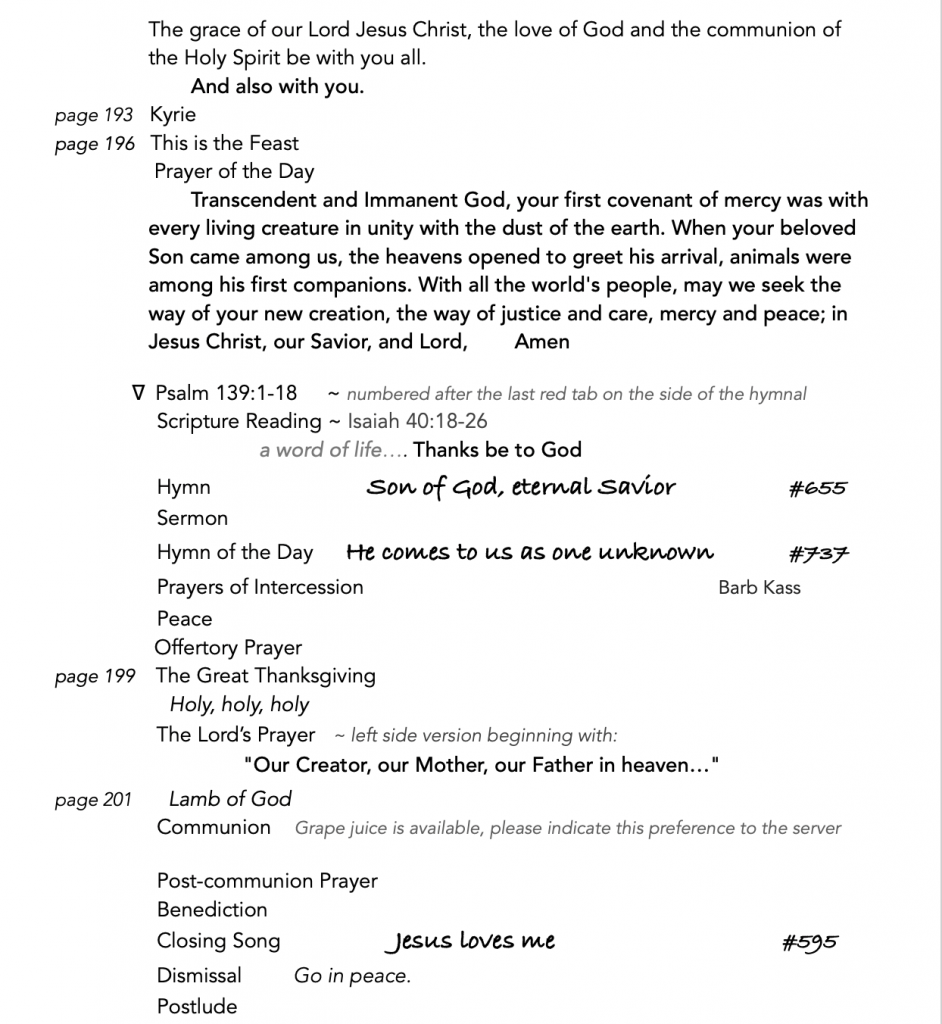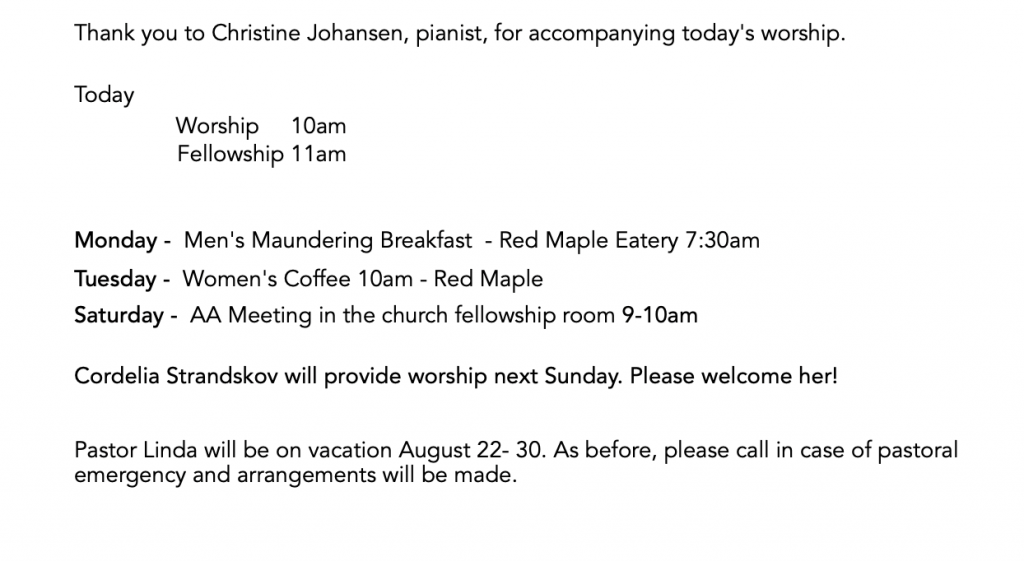Audio Recording




Isaiah 6:1-8
In the year that King Uzziah died, I saw the Lord sitting on a throne, high and lofty; and the hem of his robe filled the temple. 2Seraphs were in attendance above him; each had six wings: with two they covered their faces, and with two they covered their feet, and with two they flew. 3And one called to another and said:‘Holy, holy, holy is the Lord of hosts;the whole earth is full of his glory.’
4The pivots on the thresholds shook at the voices of those who called, and the house filled with smoke. 5And I said: ‘Woe is me! I am lost, for I am a man of unclean lips, and I live among a people of unclean lips; yet my eyes have seen the King, the Lord of hosts!’
6 Then one of the seraphs flew to me, holding a live coal that had been taken from the altar with a pair of tongs. 7The seraph touched my mouth with it and said: ‘Now that this has touched your lips, your guilt has departed and your sin is blotted out.’ 8Then I heard the voice of the Lord saying, ‘Whom shall I send, and who will go for us?’ And I said, ‘Here am I; send me!’
Matthew 1:18-24
18 Now the birth of Jesus the Messiah took place in this way. When his mother Mary had been engaged to Joseph, but before they lived together, she was found to be with child from the Holy Spirit. 19Her husband Joseph, being a righteous man and unwilling to expose her to public disgrace, planned to dismiss her quietly. 20But just when he had resolved to do this, an angel of the Lord appeared to him in a dream and said, ‘Joseph, son of David, do not be afraid to take Mary as your wife, for the child conceived in her is from the Holy Spirit. 21She will bear a son, and you are to name him Jesus, for he will save his people from their sins.’ 22All this took place to fulfill what had been spoken by the Lord through the prophet:
23 ‘Look, the virgin shall conceive and bear a son,
and they shall name him Emmanuel’,
which means, ‘God is with us.’ 24When Joseph awoke from sleep, he did as the angel of the Lord commanded him.
Colossians 1:15-20
15 Christ is the image of the invisible God, the firstborn of all creation; 16for in him all things in heaven and on earth were created, things visible and invisible, whether thrones or dominions or rulers or powers—all things have been created through him and for him. 17He himself is before all things, and in him all things hold together. 18He is the head of the body, the church; he is the beginning, the firstborn from the dead, so that he might come to have first place in everything. 19For in him all the fullness of God was pleased to dwell, 20and through him God was pleased to reconcile to himself all things, whether on earth or in heaven, by making peace through the blood of his cross.
The word of the Lord….thanks be to God
In looking at the big categories of the nature of God, this week we get up close and personal.
Immanence means existing or operating within.
Sovereignty, as I talked about it two weeks ago, sees God outside of us – beyond the Milky Way – and so ‘other’ than us, “God is God and you are not,” that there is almost no connection. We are mere mortals in a vast cosmos, playing our appointed, predestined roles, and the rolling on of ages and eons makes us, individually, very nearly nothing, and, collectively, a self-centered, invasive species. And in the grand scheme of things, that’s about right. The sticking point for Lutherans (and many others), is the Calvinist accompanying belief that God has chosen only some for salvation and predestined, and preordained exactly what will happen in minute detail for all of time. Everything happens according to God’s will and nothing happens that isn’t by God’s will. Ours is to live and die in hope – and in awe at the power and incredible works of God.
Last week I brought in a less Calvinistic view of Sovereignty in Relational Transcendence. Yes, God is God, but the Almighty longs to be in relationship with us, not apart and deterministic, but in genuine covenant of mutual promises and attentiveness.
God is all-powerful in God’s own being, but has chosen to limit that power to enable natural laws, human nature, and free will to have actual agency. In effect, God has shared power with his creation. What we do matters, and it matters to God. This is a God of continual creation, adaptation; accepting or tolerating or grieving human will and ways, and responding to it so as to keep a future opening in front of us toward redemption. God, in majesty and glory, beyond time and spatial conception, does not “lord it over us” or ignore us, but honors the creature, and hopes for what God does not demand – creaturely recognition and honor of the divine being. All people are destined for salvation, although the details are not known or knowable.
This week we hang onto transcendence but move inward. Immanence is the word of the week. It means existing or operating within.
When it is used to describe the nature of God, immanence means God is “permanently pervading and sustaining the universe”. That definition comes from my computer’s New Oxford dictionary. I especially like the ‘permanently pervading’ part of that. Pervading is such a cool word to use of God. Kind of a stealthy invasion. Seeping in – into thoughts and visions and dreams and conversations and cracks in the armor of our rational awake, aware selves… spreading through, potentially, able to be perceived in every part of creation, including human beings – every one of us.
Permanently pervading. God has always been this way according to the biblical witness. We tend to think of the incarnation and Jesus when we hear “God with us” – and I’m going to just about ignore that today, because it is the nature of God we’re looking at, not simply the second person of the trinity. God has been coming near since the moment of creation.
Think of all the biblical accounts of barren women being promised a child. That is an incredibly intimate, relational concern for the Creator of the cosmos to zero in on – a certain couple in the ancient world who would pay attention to the promise because it lies outside of their own ability to replicate. They couldn’t conceive in the usual way of things, but a promise is made and a child is conceived. And that child will go on to play a role in the salvation narrative of an entire people. Sara bore Issac, Rebekah bore Esau and Jacob, Rachel bore Joseph, Hannah bore Samuel, the barren (and anonymous) wife of Manoah bore Samson, Elizabeth bore John the Baptist. And in each case, history changed course. That’s sneaky. And then there’s Mary…
The opening of closed wombs is the quintessential example of a transcendent and immanent God. The unique creative attributes of the Lord of All Existence intervening in a particular couple’s intimate life.
The transcendent God is awesome as a mountaintop experience, but in our need, it is the personal God, a relational, noticing, immanent God that we crave.
We love the Christmas story, because it brings God close. It brings the God of Isaiah’s throne room vision with soaring cherubim and seraphs into a manger with the smell of hay and straw and animals. God comes into Mary and Joseph’s arms for snuggles. But Mary was warned that a sword would pierce her heart, too. We should be warned away from the full blast of God’s presence. Let’s go back to the list of God midwifed sons:
Isaac is bound on the altar to be sacrificed, Jacob flees for his life from his murderous brother and wrestles with a divine being on his return, before facing Esau again. Joseph is nearly killed by his brothers and then sold into slavery; Samson is dedicated as a Nazirite to God, which gives him the strength (through his uncut hair) to wage a one-man battle against the Philistines, but ultimately dies a martyr’s death in the Temple of Dagon; Samuel is given, as a very young boy, to serve God in the sanctuary at Shiloh; John the Baptist loses his head, and Jesus dies on a cross. These narratives suggest that God, who opens the womb, sets a claim on the life that emerges from it. The purpose wasn’t for a happy ending. It was for salvation’s work to move forward.
Very few of the stories we have from the bible have satisfying endings. Being close to God isn’t a success story in terms of the life we want to live. Think of Job and Jonah, or the disciples for that matter. We don’t hear of any of them going home and having grandchildren and a nice retirement.
Experiencing the direct presence of God is dangerous business. So, there must be varying degrees of proximity. Or maybe that is what “many are called but few are chosen” means. We are claimed and noticed, but most are not necessarily needed for the more dangerous forms of divine work in the world. We are on call. We are called to be the voice and face and hands and feet of God’s saving love in the small ways of everyday life and encounter.
Immanence, with it’s perpetual persistent pervading is an interesting concept in the nature of God.
On the one hand, if God is in everything, then everything is imbued with some sparkle of God’s glory. Everything and everyone bears something of God.
On the other hand, if God is in everything, it means we are disregarding the holiness, the sacred potential of almost everything.
The land is not God, but God is in the soil, and grass and plant life. There is something sacred in hummingbirds and earthworms. Water is not God, but God is water. We are not God, but God is permanently pervading us, everyone, everywhere.
It’s a startling proposition. Indigenous religion is much better at honoring the Creator than we, whose religion has perhaps become too institutionalized and removed from its roots in the earth.
We’ve gotten spiritually lazy in our relatively comfortable life. God is either ‘out there somewhere being God’ or nearby in a cozy, comforting kind of way. But the Bible doesn’t agree with either of those notions. Immanence is a companion to transcendence, not a substitution. It’s not one or the other. God is sovereign over everything, and if God is truly with us, in and through us and all things, the very least we should be doing is paying better attention.